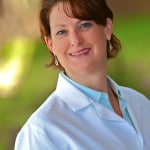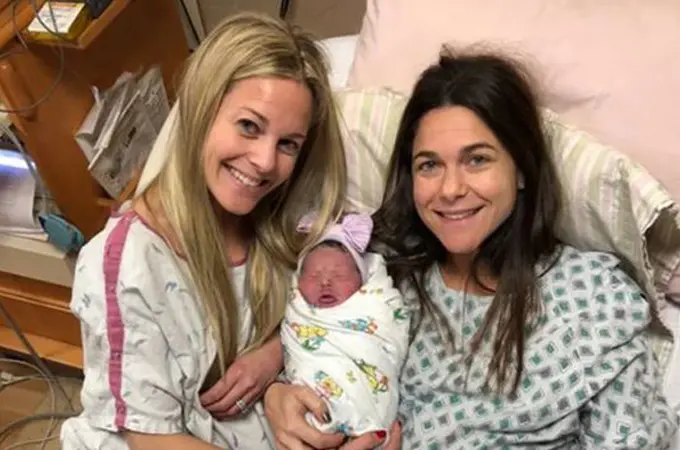
Dr. Paulette Browne, from our Fair Oaks, VA office responded to questions asked live during a recent Getting Started Webinar. From finding gestational carriers to boosting your fertility with natural methods, Dr. Browne provided answers to common fertility questions and important insight across many different forms of treatment at SGF.
Q: What can my partner and I do at home to boost our fertility naturally?
Dr. Browne: “Being healthy is always great! You want to make sure you’re not eating too many soy products, stay away from herbal therapy, reduce your caffeine intake, and avoid high mercury fish like tuna, shark, and swordfish. You can also track your fertility with ovulation predictor kits that you can get at the drugstore. These predict when you release the egg and when your (luteinizing hormone) LH levels begin to rise. The egg is released 2 days later so your most fertile time is after that LH surge. I’d recommend intercourse every other day at that time.”
Q: Is your practice LGBTQIA+-friendly?
Dr. Browne: “We certainly are! We offer treatment for all couples, as well as singles. We help our male couples find a gestational carrier and a donor egg, and for female couples we have a treatment plan called co-IVF. With co-IVF, one partner undergoes the egg retrieval and the other partner has the egg that we fertilize in her uterus.”
Visit the LGBTQIA+ Family Building page on our website to learn more about treatment options for all types of partnerships.
Q: Can multiple miscarriages be used as an appeal to IVF for an insurance company?
Dr. Browne: “We can always try. If we do an evaluation and we find a reason behind the miscarriages that could be fixed with IVF, such as chromosomal abnormalities or tubal factors, we can sometimes use that to appeal to an insurance company. With that said, some insurance companies are more flexible than others, but we are always willing to try, so coming in to meet with us and giving us the tools to create that appeal is worth it.”
Q: Do you help couples find a gestational carrier?
Dr. Browne: “We do! We work with attorneys and centers that recruit gestational carrier. The individuals and centers that we work with complete the actual recruiting, but we are very careful with reviewing the carriers’ medical records to ensure the carrier is suitable. We examine their pregnancy histories, social histories, and are very involved in terms of getting that carrier past the finish line.”
Q: My partner and I have already found an egg donor in California. Is it possible to ship her frozen eggs to your center in Atlanta?
Dr. Browne: “Yes, eggs can be shipped across the country. We have centers in California that we ship eggs between since they’re a part of our egg bank, so it’s even a possibility for you to use one of the centers we already have when it comes time to ship the frozen eggs.”
Q: What does a typical timeline look like for IVF treatment?
Dr. Browne: “Typically we put the patient on birth control pills for 18-21 days after day three of her period. The IVF cycle stimulation is about 9-14 days. Retrieval takes place 2 days later, and transfer is 5 days later. The pregnancy test is done about 2 weeks later. Overall it’s about a 2 month process. Three of the weeks don’t require much for the patient, and then 3 other weeks require you to be more active in the process. The last 2 weeks are just a matter of waiting for the pregnancy results. We can start treatment as soon as you get your menstrual cycle after all the blood tests have been conducted and you’ve made a treatment plan with your doctor.”
Q: How important is it to have your AMH and FSH tested on the third day of your cycle?
Dr. Browne: “AMH can be tested on any day of your cycle, but FSH needs to be tested on day 2, 3, or 4to be accurate. On day 10 of your cycle, the FSH is supposed to be a little higher because it’s actively trying to get the eggs going. In order to evaluate reserve, FSH does have to be tested within that window of time.”
Q: Are any of the common processes like IVF and IUI similar to what I’d expect for egg freezing?
Dr. Browne: “Yes, they’re actually very similar. For egg freezing, we forego the evaluation of the uterus until someone comes back to use their eggs. We do the evaluation of ovarian reserve, bloodwork, ultrasound, AMH level, and then you go through the IVF treatment with injections. After that, we retrieve the eggs and see how many we can use.
Shady Grove Fertility has a great deal of experience freezing and thawing eggs. We offer some great financial programs that ensure you have a certain amount of eggs frozen, and we also have the only published egg freezing success rates in the country.”
Q: How do I decide between choosing an SGF center near my home or one near my work?
Dr. Browne: “It’s really your choice! SGF allows you to pick a doctor in any one of the offices and see him/her for your initial consultation, and then do your monitoring at another Shady Grove Fertility office that offers full-service monitoring. Let’s say you came to see me at my office in Fairfax, VA, but you work downtown. You can still be close to work and visit our K Street office in D.C. to do your monitoring there. If you had an IUI monitoring appointment that needed to be done, but you had a trip to Atlanta already planned – you can still be my patient and have that appointment in Atlanta. I’d get the results back just the same. Definitely pick a doctor you’re comfortable with, but you’ll make more of a connection if you see him/her at each of your appointments.”
Q: What’s the correlation between the hormone to ovulate and the trigger injection?
Dr. Browne: “The trigger injection acts on the same receptors as the hormone you sent to ovulate. That hormone is LH, it comes from the pituitary gland and the trigger injection is usually HCG, which strongly binds to the LH receptors. The HCG is a pregnancy hormone but it works just the same as LH.”
Q: Is there any type of genetic testing before treatment?
Dr. Browne: “We offer all our patients genetic testing for recessive mutations. Recessive mutations are ones in which you carry a gene but no disease is present because you only have one of the genes. If you and your partner, or the sperm donor, or the egg donor carry the gene for the same thing, there’s a 25% chance that you give the baby the gene and the disease could be significant. If two people don’t carry the same gene it’s not a problem. If both do carry the same gene, we can still monitor the embryo during IVF and test the cells to see if both genes are present. We currently test for 175 recessive mutations.”
To schedule an appointment with Dr. Browne or any of our SGF physicians, please call our New Patient Center at 888-761-1967 or fill out this brief form.





